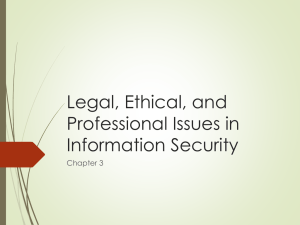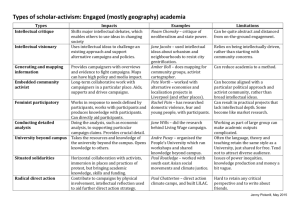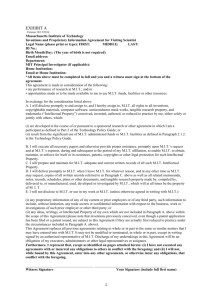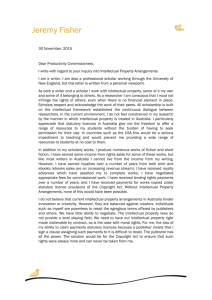Please click here to Legal Notice.
advertisement
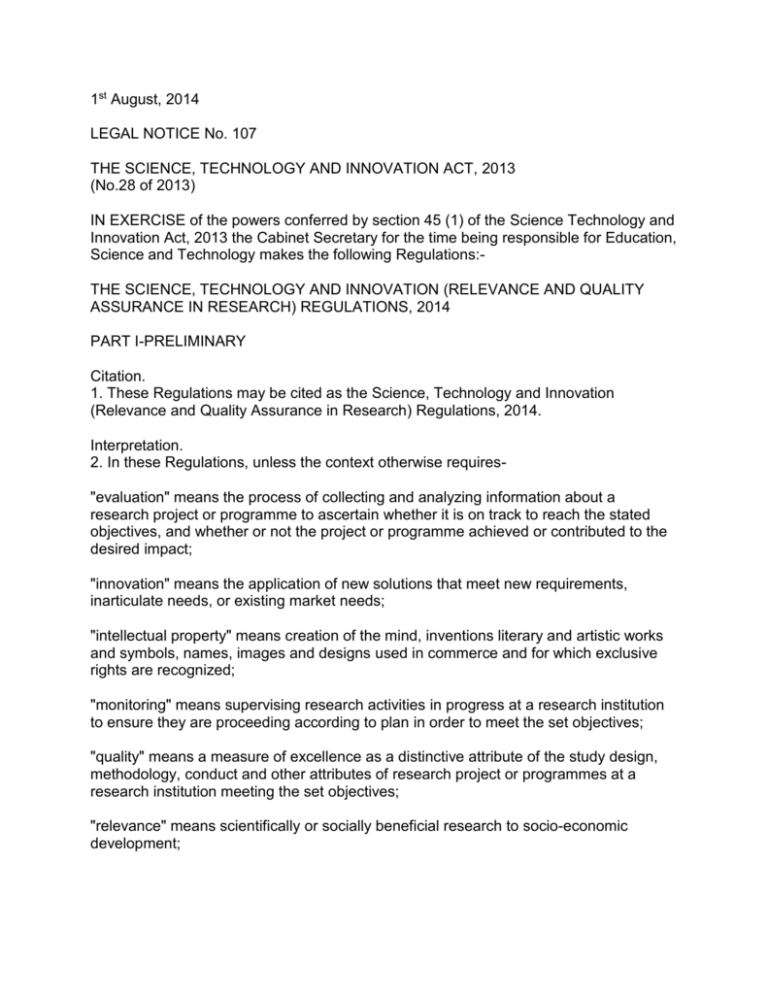
1st August, 2014 LEGAL NOTICE No. 107 THE SCIENCE, TECHNOLOGY AND INNOVATION ACT, 2013 (No.28 of 2013) IN EXERCISE of the powers conferred by section 45 (1) of the Science Technology and Innovation Act, 2013 the Cabinet Secretary for the time being responsible for Education, Science and Technology makes the following Regulations:THE SCIENCE, TECHNOLOGY AND INNOVATION (RELEVANCE AND QUALITY ASSURANCE IN RESEARCH) REGULATIONS, 2014 PART I-PRELIMINARY Citation. 1. These Regulations may be cited as the Science, Technology and Innovation (Relevance and Quality Assurance in Research) Regulations, 2014. Interpretation. 2. In these Regulations, unless the context otherwise requires"evaluation" means the process of collecting and analyzing information about a research project or programme to ascertain whether it is on track to reach the stated objectives, and whether or not the project or programme achieved or contributed to the desired impact; "innovation" means the application of new solutions that meet new requirements, inarticulate needs, or existing market needs; "intellectual property" means creation of the mind, inventions literary and artistic works and symbols, names, images and designs used in commerce and for which exclusive rights are recognized; "monitoring" means supervising research activities in progress at a research institution to ensure they are proceeding according to plan in order to meet the set objectives; "quality" means a measure of excellence as a distinctive attribute of the study design, methodology, conduct and other attributes of research project or programmes at a research institution meeting the set objectives; "relevance" means scientifically or socially beneficial research to socio-economic development; "research" means any investigation or inquiry which aims to collect and collate data or information, academic or non-academic, in areas of humanities or pure sciences or technology that will lead to new knowledge or information. Application. 3. These Regulations shall apply to all persons and research institutions undertaking research in Kenya. Objectives. 4. The objective of these Regulations is to promote the highest standards, and quality of research for the realization of institutional mandates and national priorities. PART II- RELEVANCE AND QUALITY ASSURANCE Relevance. 5. Research programmes and activities in research institutions shall be considered relevant if they address national priorities and aspirations and reflect institutional mandates and ethics. Research Capacity. 6. Every research institution shall put in place clear organizational structures with definite responsibilities, systems, procedures, financial resources and facilities for implementing its projects or programmes. Code of ethics. 7. (1) A research institution shall adhere to the code of ethics for the time being prescribed for the respective areas of research. (2) A research institution shall be required to establish an institutional scientific and ethical review committee which shall be accredited by the Commission. (3) An institutional scientific and ethical review committee shall develop guidelines or manuals and deposit them with the Commission. Requirements for quality assurance. 8. (1) A research institution shall develop standard operating procedures and manuals to provide an optimum degree of order in quality assurance research activities in their specific contexts and in line with international benchmarks recognized by the Commission. (2) For the purposes of attaining relevance and quality in research, institutions shall develop(a) a strategic plan; (b) a service charter; (c) manuals on human resources, finance and procurement; (d) performance reporting procedures; (e) good corporate governance; (f) relevant policy codes of ethics; (g) information, innovation and knowledge management manual; (h) productivity and quality management manual; and (i) customer care and orientation manual. Intellectual property policy. 9. (1) Each research institution shall put in place a policy on intellectual property rights in line with the relevant law for the time being in force. (2) In the development of the policy under subparagraph (1), a research institution shall follow the guidelines set out in the First Schedule. PART III _ INSPECTION, MON ITORING AND EVALUATION Inspection. 10. (1) The Commission shall inspect, monitor and evaluate every research institution in order to verify relevance and assure quality and compliance with these Regulations. (2) The inspections referred to in subparagraph (1) shall comprise a pre-registration inspection, a compliance inspection and a special inspection as may be directed by the Commission from time to time. (3) The Commission shall appoint experts in relevant disciplines, who may include persons from outside the commission, to carry out the inspections. Monitoring. 11. (1) The Commission shall undertake regular systematic collection and analysis of information on the progress of research in an institution with the purpose of improving efficiency and effectiveness in the operations of the institution. (2) The Commission shall in carrying out monitoring under subparagraph (l) follow the guidelines set out in the Second Schedule. Evaluation. 12. (1) The Commission shall undertake an assessment of the impact of a project or programme against the objectives and expected outputs thereof as stated at the design stage of the project, and shall require the institution to provide a full explanation where the set objectives and outputs are found not to have been achieved. (2) The Commission may, where the researcher is found to have been negligent in the implementation of the research under subparagraph (l), take appropriate action, which may include recommendation of suspension of funds, recovery of any misappropriated funds or legal action. FIRST SCHEDULE (r.9) GUIDELINES FOR INTELLECTUAL PROPERTY MANAGEMENT POLICY 1. Objectives of an Intellectual Property Policy for Institutions Intellectual property, management policy should bring harmony to the conflicting interests of all the stakeholders in the generation and commercialization of a patent. Universities and Research and Development institutions should be dedicated to teaching and research, and to the dissemination of all new knowledge generated. The basic goal of an intellectual property management policy should therefore be (a) to provide for the intellectual property generated at the institution; (b) to promote the progress of science and technology; (c) to ensure that discoveries, inventions and creations generated by staff and students are utilized in ways most likely to benefit the public; and (d) to ensure fair and equitable distribution of all benefits accruing from inventions and creations at the institutions. 2. Issues to be addressed by an Intellectual Property Management Policy In order to harmonize the various conflicting interests of stakeholders and achieve broad-based objectives, an intellectual property management policy for universities and R & D institutions should address some of the following issues: (a) Coverage of intellectual property policy; (b) Ownership of intellectual property; (c) Disclosure of intellectual property; (d) Marketing, commercialization and licensing of patents; (e) Distribution of benefits; (f) Rights and obligations of an inventor and the institution; (g) Conflict resolution mechanism; (h) Material Transfer Agreements; (i) Access and benefits sharing management; and (j) Other pertinent issues. SECOND SCHEDULE (r.11 (2)) ITEMS TO BE CONSIDEREO TONUONITORING AND EVALUATION Monitoring shall address issues as follows(a) Purpose of the institution (adherence to the character, mandate and objectives); (b) Research policy; (c) Human resource capacity and capabilities; (d) Research infrastructure and environment; (e) Facilities like laboratories, communication; transport and any other; (f) Internal quality assurance system; (g) Management of intellectual property rights; (h) Standard operating procedures and manuals; (i) Logical framework; (j) Collaboration and partnerships with industry, national and international institutions and universities; (k) Integrated information management system for storage and retrieval; (l) Scientific and ethical review committees; and (m) Dissemination strategies. Dated the 22nd July, 2014. JACOB T. KAIMENYI, Cabinet Secretary for Education, Science and Technology.





